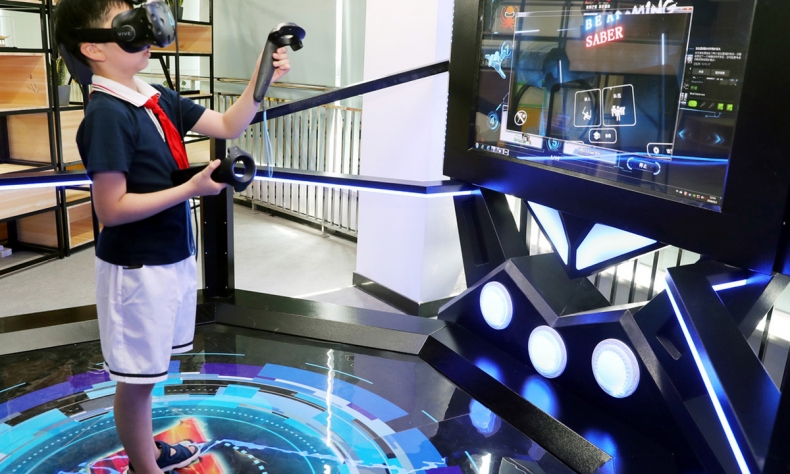
A Change in Approach
Traditional industries in a southeastern city embrace intelligent manufacturing and advanced management concepts
When the Huayang International Holding Co. Ltd. entered the market of making sports shoes, especially for outsourcers, it had a credo. It was “just give us the tracing of a foot or your idea and we will provide you customized shoes,” according to Du Pihuang, manager of a subsidiary of the company. Using inexpensive skilled labor and its advantages in designing and manufacturing, Huayang signed long-term cooperation contacts with dozens of international companies, winning a firm foothold in both domestic and foreign markets.
However, while this operational model highlighted the capability of the company, it also sowed the seeds of a problem. Located in Jinjiang, a small city under the jurisdiction of Quanzhou in southeast China’s Fujian Province, Huayang is one of the over 5,000 companies, big and small, that have set up shop here. They are all in the shoe manufacturing industry, turning out sneakers for hundreds of sports brands which are then shipped countrywide and to global markets. This earned Jinjiang the title of the shoe capital of China.
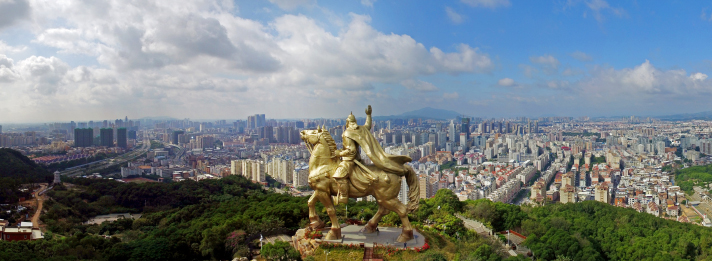
At first, it was a good business. “There were a lot of foreign orders for the companies in Jinjiang. Labor was inexpensive and their sales volumes grew,” Du said.
Then gradually, a change set in. The orders were pouring in because the shoes made in Jinjiang were cheap. While they cost about $8, the retailers would sell them in high-end malls in other countries at prices increased tenfold. The profit mostly went to the brand owners and foreign distributors and the original manufacturers in Jinjiang were forced to produce more for a meager profit though the shoes were the fruit of their labor and design.
In addition, competition among the local manufacturers intensified, land, labor and electricity costs went up, and there was a shortage of skilled workers. The low added value of the products the industry created and the lack of technology became barriers to its development.
To survive in this changed scenario, many of Jinjiang’s labor-intensive companies including shoe manufacturers like Huayang have switched track since 2015, focusing on creating higher-quality products, which meant abandoning outdated production processes and introducing innovation and technology. It is a mirror image of the change taking place across China, which is transitioning to quality production and producing original brands from once being the world’s factory for cheap production.
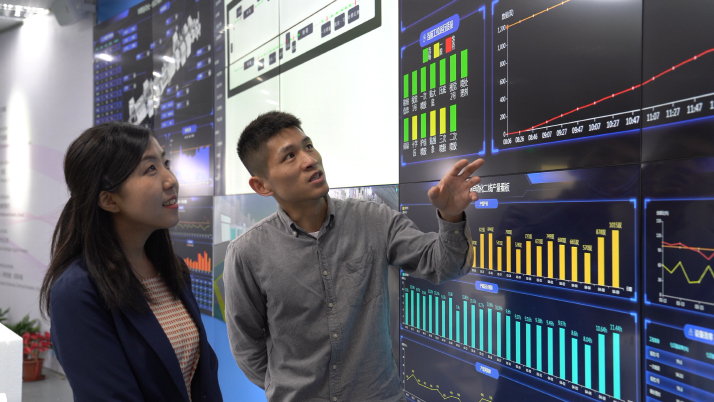
From Labor to Intelligence
The only way out of the difficulties was intelligent transformation. So the companies decided to embark on a new manufacturing model that had less demand on labor, and they could make more profit by utilizing new technology.
Huayang thought of buying advanced equipment from Europe and its buyers went to Italy, Germany and Switzerland, looking for intelligent machines. To their disappointment, they found it was an unaffordable venture. The cheapest machine cost 20 million yuan ($2.8 million). But more importantly, they were incompatible with the local conditions in Jinjiang.
The company decided to take a more proactive approach and in 2016 established Huabao Intelligent (Fujian) Technology Co. Ltd., its research and development arm, to design intelligent, automated and digital equipment that would meet the needs of the local shoe industry.
“In the past two and a half years, we have invested a lot of money in this,” Du said. Huabao cooperates with Huazhong University of Science and Technology’s Research Institute of Intelligent Manufacturing, which is also supported by the local government to upgrade local industries, nurture talents and apply advanced technology.
In August 2018, Huayang’s first intelligent shoe production line was installed in its factory, and two months later, it began operation. Today, there are five intelligent production lines. Compared to the traditional manual labor-intensive way, the intelligent lines have cut 70 percent of manual labor, effectively filling the vacuum caused by the shortage of workers. Production capacity has also improved by 25 percent, helping maintain quality at a lower cost and enhancing the competitiveness of the shoes.
“With advanced equipment, we are producing shoes with better quality, which brings more added value. Today, this is the direction of the shoe industry not only in Jinjiang but in Quanzhou and the whole country at large,” Du said.
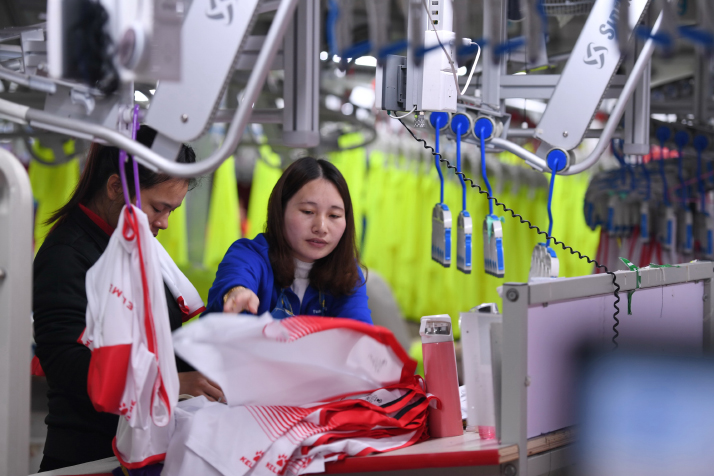
Support for Startups
In addition to upgrading and transforming traditional industries like the efforts in Jinjiang, Quanzhou, the starting point of the ancient maritime Silk Road, is building hi-tech industrial clusters. The Quanzhou Hi-Tech Industrial Development Zone is an important technological innovation base, specializing in information technology, electronics and mechanical engineering.
Fujian Yishili Information Technology Co. Ltd. arrived in the zone in 2013. It makes smart products for campuses like swipe cards, and apps providing information about classes and other activities, which are used in many universities in China. Jiang Tongliang, manager of the company, said starting business in Quanzhou was a wise decision. “The local government is giving considerable attention to the technology industry,” he said. “The policies and financing arrangements offered by the zone are providing startups strong support, attracting people like me who want to develop technology.”
With entrepreneurs settling down in Quanzhou, the local authorities decided to lend a hand with marketing, a necessity especially for startups. So Quanzhou Tianjiu Incubator Management Co. Ltd. was brought in to operate services for enterprises.
“We provide comprehensive assistance in terms of financing, recruitment and marketing for startups’ development,” said Ni Miaoying, manager of Tianjiu. The company is working with over 50 startups, helping them to run their business at the initial phase.
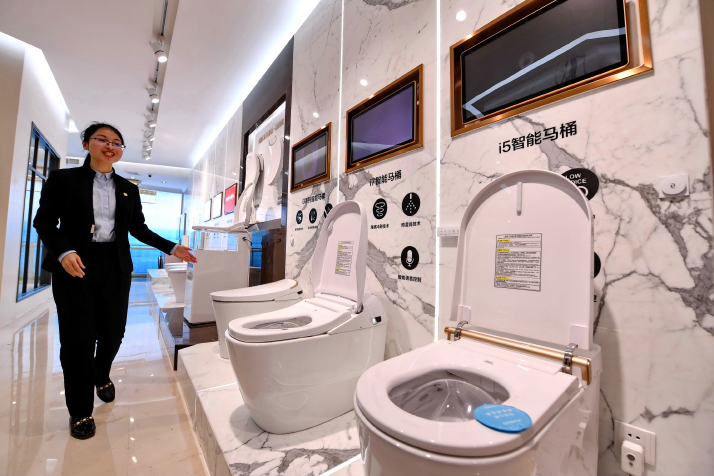
Creating a Talent Pool
With China’s top talents generally heading for large cities like Beijing and Shanghai, a smaller city like Quanzhou needs incubators
for its human resources. Last year, the Huaqiao University (Fengze) Innovation and Pioneering Park was built jointly by the local government and the university. It is a platform for incubating advanced technologies and transferring them into productivity. More than 1,700 people, including a group of first-class scientists, are working in the park, creating and nurturing a talent pool for Quanzhou and helping retain talents in the city.
Wu Xiaogui, Chairman of Fujian Huachuang Qida Investment Co. Ltd., the company running the park, said a lot of people hailing from Quanzhou or neighboring areas have made outstanding achievements in hi-tech fields such as electronic information engineering.
Most of them are over 50 and facing a common problem. They have aged parents to take care of in their hometowns and are interested in jobs nearby. The park encourages them to move in and continue their work there. Wu said the arrival of these professionals will help bring back the young people who left for large cities. “Young researchers become willing to work here because they have tutors to guide them and at the same time, they can contribute to the development of their hometown.”
To help the talents settle in, the park is organizing their accommodation as well as recreation. It built Quanzhou’s first apartment housing with recreation and exercise facilities. The aim is to create a warm community with entrepreneurial spirit, where people have a sense of belonging while making innovations.
During the Second Session of the 13th National People’s Congress, the national legislature, in March, President Xi Jinping emphasized the importance of innovation, entrepreneurship and creativity when joining deliberations with deputies from Fujian. “We should create favorable conditions for the development of small and medium-sized enterprises and young people, and establish an acceleration mechanism for hi-tech companies,” he said.
As one of Fujian’s best economic performers, Quanzhou continues to pursue high-quality economic development by transforming traditional industries, incubating hi-tech industries and creating an attractive environment for innovation, entrepreneurship and creativity.
 Facebook
Facebook
 Twitter
Twitter
 Linkedin
Linkedin
 Google +
Google +










